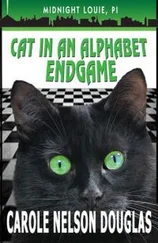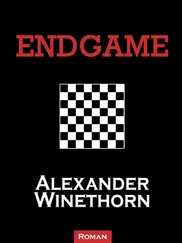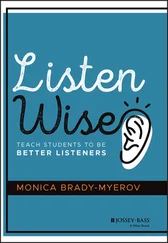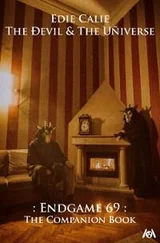At the beginning of 1997 Fischer’s passport was expiring. Though it could have been renewed at the U.S. embassy in Budapest, Bobby was worried: What if his passport was confiscated and he was trapped in Hungary, unable to travel anywhere and possibly unable to access his bank account? Or, even worse, what if they arrested him? He considered all possibilities as if he were analyzing a chess problem, and decided that he didn’t want to be confined in Hungary. Bobby asked Rigo to drive him to Bern, Switzerland. When they arrived, he entered the U.S. embassy, trying to look calm, though he was feeling intense trepidation. His reason for attempting a passport renewal in Switzerland rather than Hungary was that even if he were stymied and had to stay put in Switzerland, he would still be able to access the money he had on deposit in the Union Bank of Switzerland. Rigo waited for him in the car outside of the embassy, equipped with a list of emergency telephone numbers to call should Bobby be detained or arrested; he also had a set of keys to Bobby’s safe deposit boxes and other locked cases. Within forty minutes, Bobby exited the building with a big smile on his face: He had a new U.S. passport, valid until 2007. It was now safe for him to return to Budapest.
Of course, there was one country Bobby still couldn’t travel to, since if he did it would mean almost certain arrest: the United States. This presented an emotional dilemma in July of 1997. Regina had died and Bobby wanted to attend her funeral. Some chess players in the state of Washington conjectured that he surreptitiously entered the United States wearing a disguise, first flying to Vancouver, Canada, and then crossing the border to Seattle and traveling south to California by car, where he attended the service incognito. According to the story, he didn’t talk to his sister, nephews, or anyone else. He just stood on the sidelines, unrecognized.
Not a year later, Bobby’s sister, Joan, then age sixty, died suddenly of a stroke, and Bobby once again felt the pangs of not being able to show his respects at a family member’s graveside. This enforced separation from his family aggravated the hatred for America that he’d felt since 1976, when he lost his case in federal court and refused thereafter to pay taxes. It’s not clear why, during Bobby’s years eluding American authorities, his sister and her family didn’t visit him in Europe; his mother, however, had visited him once in Budapest.

After the schism with the Polgars and the Lilienthals, Bobby’s life in Budapest became less social, but since he’d lived an isolated life for so long, he didn’t appear outwardly affected by the two families’ lack of warmth. Still, the absence of these supportive relationships must have hurt, despite his role in the schism.
His daily routine consisted of rising in the afternoon and having breakfast at his hotel—usually in his room, but occasionally in the dining room—swimming in the indoor pool or taking a trip to one of the city’s many thermal baths, then making a visit to a library or bookstore. Sometimes he’d vary his routine and go on long walks, wandering with his memories near the caves in the Buda Hills—or he’d have an espresso on the terrace of the Hilton on Castle Hill. Rigo usually picked him up at his hotel at about seven p.m. for dinner. Bobby deliberately varied the kinds of food he ate: Japanese, Chinese, Indian, Hungarian, even Kosher, alternating restaurants every night. Occasionally he was joined by Pal Benko or Lajos Portisch or Peter Leko—a young Hungarian grandmaster—or one or two others. Bobby would only sit with his back against the wall, preferably in a corner and away from the windows—all tactics to escape notice by other diners or passersby. He always picked up the check for everyone at his table.
He carried his own bottle of water and only occasionally would have alcohol. Once he drank a little too much palinka , a plum brandy made in Hungary and Transylvania that is supposed to aid digestion after a meal, and he got drunk. He was so unused to such a quantity of alcohol that his hangover lasted for three days.
Many have wondered how much of the Hungarian language Bobby mastered during his almost eight years in Budapest. Zsuzsa Polgar believed that he spoke almost no Hungarian; Zita claimed he only knew about seven words, gymulcsriz , his favorite desert, being one of them; and Rigo thought he knew about two hundred words, enough to order from a menu, ask for directions, and make himself understood to shop owners and others. The fact that most older Hungarians knew Russian, and that many also had a command of German, while most of the younger generation could speak English, helped Bobby in communicating.
Once or twice a week in the late afternoon Bobby went to the movies and saw mostly popular American films. He said that he identified with the character played by Jim Carrey in The Truman Show , that he sometimes felt as though he lived in a Kafkaesque world where he—Bobby—like Truman, was the only honest person in the world and everyone else was an actor.
Back in his hotel room at around eleven p.m., Bobby would read and listen to music and the news on BBC radio. He had decided to write an anti-America book in which he’d present his arguments against the country, tying that in somehow with his distrust of and animosity toward Jews (and his personal enemies, whom he called “Jews” regardless of their religion). He connected all this with the rage he still felt for the loss of personal effects he’d kept for years in a storeroom in California, which had been sold at auction when the storage rent wasn’t paid. As preparation for the book, Bobby spent part of his nighttime hours recording on cassette tapes his anti-Semitic and anti-American screeds.
As the hours faded into dawn, he’d play over games from the latest tournaments, impeccably dissecting each move using his mental microscope, looking for errors, misinterpretations, and fallacious conclusions—especially ones that might prove conspiracies among those he believed were the chess world’s thieves and embezzlers. Each game became a mystery novel. The goal was never to find a murderer—rather, it was to discover how the “cheating” had occurred.
He began to limp noticeably, and several of his colleagues urged him to see a doctor, a dreaded experience that Bobby would only agree to if he were in enormous pain. Finally, after the suffering became intolerable, he relented, was examined, and was told that he was suffering from orchitis, an inflammation of the testicle. As he walked, he was “guarding” the gland and therefore limping. Usually, a ten-day antibiotic treatment alleviates the symptoms, or a fast in-office medical procedure can release the pressure. Bobby availed himself of neither. Instead, he told everyone that his limp was caused by an old leg injury (he’d broken his leg many years before), and he just suffered through the pain of orchitis until the swelling subsided on its own. He continued to walk with a slight limp for the rest of his life.

“As Adolf Hitler wrote in Mein Kampf , the Jews are not the victims, they are the victimizers!” blared Bobby Fischer during a live broadcast on Calypso Radio in Budapest on January 13, 1999. How many of the 1.5 million citizens of Budapest, or the ten million people who lived in all of Hungary, were listening to Bobby when he offered his hate-filled comments is not known, but the interviewer, Thomas Monath, was dumbfounded as to what to do. Turn off his microphone? Shout him down? Bobby’s rant could be heard for years all over the world because the show went online.
Читать дальше
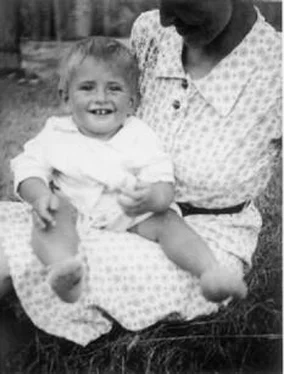


![Антон Текшин - EndGame [СИ]](/books/394477/anton-tekshin-endgame-si-thumb.webp)
